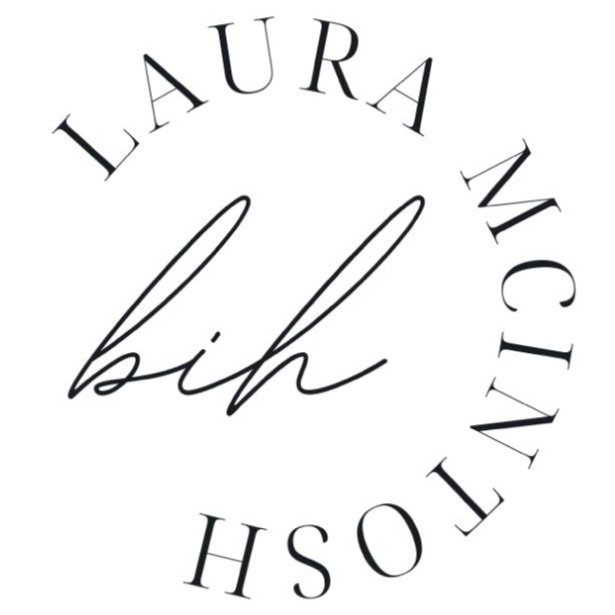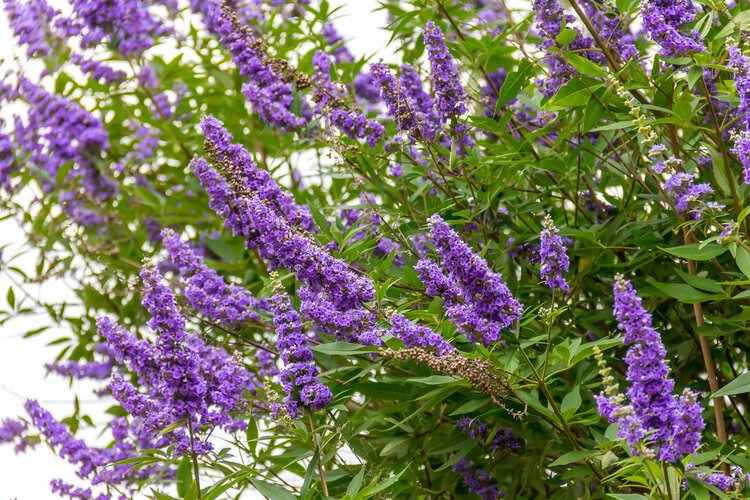Planting your Herb Garden
Today I am sharing herbs because herbs are just so good for you! Did you know you can make teas, tinctures, oils, and more just with some herbs you can grow in your backyard. You can plant these in pots or right into the garden. Don’t forget, it’s always great to have a separate herb garden if you can because these herbs may overgrow your garden if you give them the chance.
Here’s a list of some of the herbs I planted today with more information on each one!
WATCH LAURA GARDEN BY CLICKING HERE
CHASTE TREE - VITEX HERB:
(Or as I call it, the PMS Herb)
This herb has been used to manage PMS symptoms. Think of it like a lilac tree that can take the heat.
MORE INFO: HTTPS://WWW.GARDENINGKNOWHOW.COM/ORNAMENTAL/TREES/CHASTE-TREE/CHASTE-TREE-CULTIVATION.HTM
ACHILLEA “WHITE YARROW”:
The Skin Herb
Yarrow's most ancient use is in healing the skin. Yarrow has antimicrobial and pain relieving traits and is wonderful for soothing skin that is prone to irritations. It is also deeply nourishing and restorative. It aids in healing broken capillaries and is ideal for sensitive skin as well as problematic skin. This fragrant wildflower is known for its feathery, fern-like foliage and flattened flower clusters. Achillea millefolium is easy to grow from the seed.
MORE INFORMATION: HTTPS://WWW.AZURESTANDARD.COM/HEALTHY-LIVING/HOW-TO-MAKE-YARROW-TEA-HOME-REMEDIES/
ALTHAEA OFFICALIS - MARSHMELLOW:
The Leaky Gut Herb
The root has been used for over 3,000 years in TCM. That's because of marshmallow root's natural mucilage. ... The gooey texture of marshmallow root also works as a coating for the stomach lining. In the coating lives flavenoids that starve inflammations, lowering your chances of leaky gut syndrome.
MORE INFORMATION: HTTPS://WEBSTU.ONU.EDU/GARDEN/NODE/361
ARTEMISIA ANNUA- "SWEET ANNIE”:
The upset stomach herb
The plant is antibacterial and very useful for stomach upset due to its high volatile-oil content
MORE INFORMATION: HTTPS://WWW.HOBBYFARMS.COM/SWEET-ANNIE-FOR-CRAFTING-AND-GOOD-HEALTH/
PETROSELINUM - ITALIAN PARSLEY:
The bad breath herb
The essential oil, Eugenol, present in this herb has been in therapeutic application in dentistry as a local anesthetic and antiseptic agent for teeth and gum diseases.
MORE INFORMATION: HTTPS://WWW.NUTRITION-AND-YOU.COM/PARSLEY.HTML
CHAMOMILE NOBILE - CHAMOMILE:
“Earth Apple” the blonde hair herb
Chamomile is an herb that comes from the daisy-like flowers of the Asteraceae plant family. It has been consumed for centuries as a natural remedy for several health conditions.
MORE INFORMATION: HTTPS://WWW.GARDENIA.NET/PLANT/CHAMAEMELUM-NOBILE
VALERIANA:
The sleeping or calming herb.
Valerian contains a substance known as valerenic acid that is believed to affect gamma-aminobutyric acid (GABA) receptors in the brain. It is believed that one of the purposes of GABA is to control fear or anxiety experienced when nerve cells are overexcited.
MORE INFORMATION: HTTPS://WWW.VERYWELLHEALTH.COM/WHAT-YOU-NEED-TO-KNOW-ABOUT-VALERIAN-88336
BORAGE HERB:
The throat soothing cucumber herb
Borage is also used for a hormone problem called adrenal insufficiency, for "blood purification," to increase urine flow, to prevent inflammation of the lungs, as a sedative, and to promote sweating. Borage is also used to increase breast milk production and to treat bronchitis and colds.
MORE INFORMATION: HTTP://WWW.FLOWERSOCIETY.ORG/THREE_BORAGE.HTM
Satureja-Montana: Winter savory
The insect or bee sting herb
Winter savory has been purported to have antiseptic, aromatic, carminative, and digestive benefits. It has also been used as an expectorant and in the treatment of bee stings, or insect bites, by the use of a poultice of the leaves. The plant has a stronger action than the closely related summer savory.
More information: https://en.wikipedia.org/wiki/Winter_savory
Artemedia Vulgaris - Mugwart
“The beer making herb”
The mugwort plant has been traditionally used for everything from digestive disorders to beer-making, insect repellent, and more.
more information: https://www.verywellhealth.com/mugwort-benefits-side-effects-dosage-and-interactions-4767226











